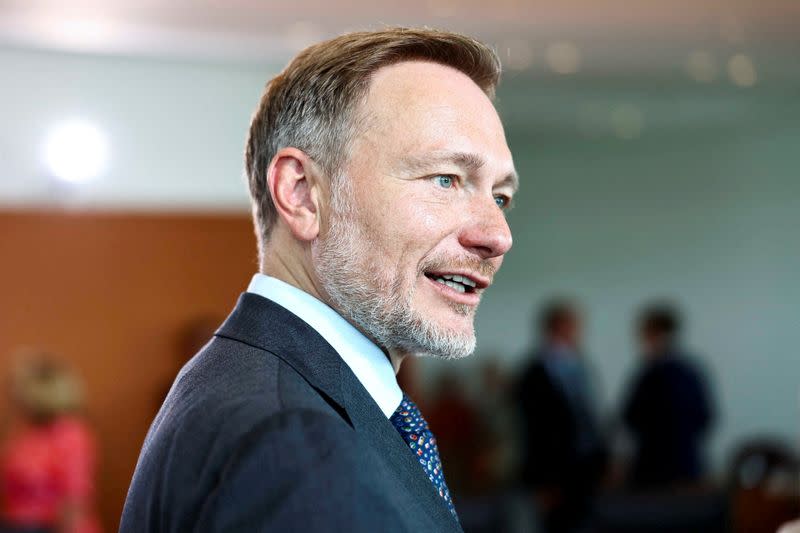German government working intensively on 2025 draft budget, minister says

By Maria Martinez
BERLIN (Reuters) - The German government is working intensively on the 2025 draft budget, German Finance Minister Christian Lindner said on Thursday.
German Chancellor Olaf Scholz, Economy Minister Robert Habeck and Lindner aim to agree on an outline of the 2025 budget next week, sources told Reuters on Thursday, after weeks of wrangling.
"In Berlin, we are working intensively on a draft for the 2025 budget and there is also some public controversy in Berlin about the right way forward for our economic system," Lindner said in Munich at an event for the 75 anniversary of the Ifo Institute.
Lindner said there is a dispute between different schools of thought over the best future direction of Germany's social market economy.
Some economists, inspired by the U.S. Inflation Reduction Act, want subsidies, while others want to give individuals power over economic decisions, he said.
“Taking on more public debt in order to finance additional subsidies would jeopardizes our culture of stability,” Lindner said. “Germany must continue to be the anchor of stability in Europe.”
(Reporting by Maria Martinez; Editing by Madeline Chambers)

 Yahoo Finance
Yahoo Finance 